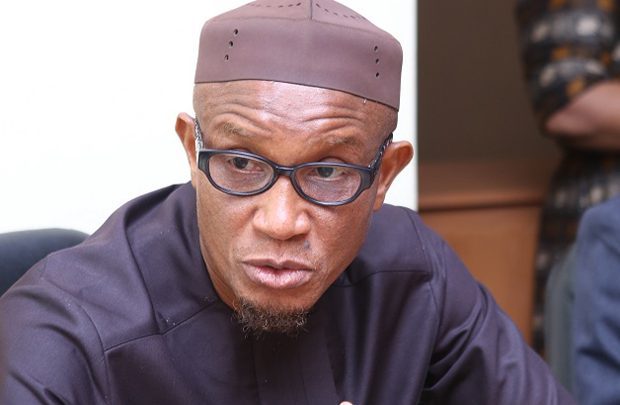Gov’t Interested In Social Projects – Minister

The Minister of Information, Dr Mustapha Abdul-Hamid, has stated that the Ministry of Finance is actively involved and interested in financing social protection policies in the country.
Dr Abdul-Hamid, responding to portions of a report issued by United Nations Poverty and Human Rights Expert, Professor Philip Alston, said the Ministry of Finance under the Akufo-Addo government has acted on social protection policies by making funds available for their implementation.
Professor Alston, in the report he issued after a 10 day fact-finding mission to Ghana noted that the Ministry of Finance, ‘has such limited interest in social protection’, an assertion Dr. Abdul-Hamid said government disagrees with.
Professor Alston also stated that policies being funded by the Ministry of Finance were not pertaining to social protection, but the Minister of Information noted that the conclusion was not premised on any fact.
Dr. Abdul-Hamid believes policies being implemented by government through the Ministry of Finance like the planting for food and jobs and free Senior High School were having great poverty-alleviation impact on families across the entire country.
“For the 100,000 innocent Ghanaian children from poor homes who would have otherwise dropped out after Junior High School, this policy does not show that the Government of Ghana today has, ‘such limited interest in their social protection,” he said.
Dr. Abdul-Hamid pointed out that thanks to the prioritization of social protection programmes, the Ministry of Finance has doubled the capitation grant by 100 per cent to enable children from poor families attend school at the basic level from two percent to three percent.
“Indeed he gives credence to our point when he states on page 12 of his report that, ‘there has been an increase in social protection spending by government from GH¢50m in 2016 to GH¢157.7m in 2017 and GH¢168.3m in 2018,”he added.
The Information Minister who also doubles as the government spokesperson said, Professor Alston’s statements that ‘little redistribution takes place through the budget’ and ‘except for health and education programmes, the rest of the budget disadvantaged the poor’ was incorrect.
“The Establishment of the Zongo Development Fund that targets especially Inner Cities and Zongo communities, redistributes wealth to the poor communities of our country that aims to improve their infrastructure base and thereby improve standards of living,” he said.
Mr. Abdul-Hamid however acknowledged the report stating, “We welcome such high powered visits by international bodies and the reports that these visits produce should help government to continue to shape and re-shape its implementation of strategies designed to tackle social injustices, reduce inequality, create wealth and contribute to the development and forward march of the country.”
The Controversial Report
Mr. Alston, in the report indicated that there was high income inequality in Ghana which had resulted in the rich getting richer and the poor becoming poorer.
Addressing the media at the end of his official visit to the Greater Accra, Northern, and Upper East regions, the UN expert explained that one in every 12 Ghanaian still lived in extreme poverty.
He said there was also low legal aid for the poor in Ghana, indicating that there was only one legal aid lawyer to about one million Ghanaians.
According to him, “Ghana is at a crossroads and must now decide whether to continue existing policies that will further enrich the wealthy and do little for the poor, or to make fiscal adjustments that would lift millions out of poverty and bring them into the agricultural economy in ways that would contribute significantly to economic growth.”
He urged the Government to prioritize social protection domestically to enable the country achieve its Sustainable Development Goals (SDGs).
Ghana, he said, had been a “champion of African democracy and a country which has achieved some important development milestones over the years.”
However, he lamented that “the benefits of record levels of economic growth experienced over the past decade have gone overwhelmingly to the wealthy, and inequality is higher than it has ever been in Ghana.”
Source: Daily Guide






10 Comments